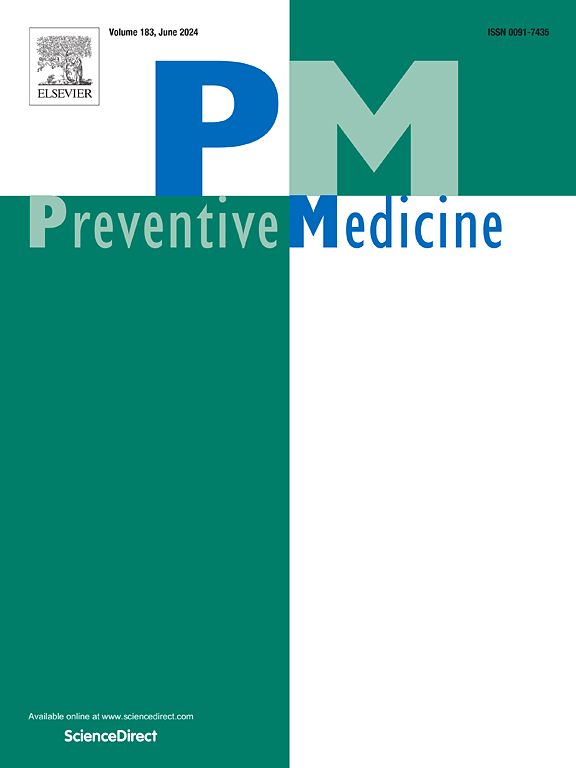Cholesterol screening by nativity status in pediatric patients receiving care in United States community-based clinics
IF 3.2
2区 医学
Q1 MEDICINE, GENERAL & INTERNAL
引用次数: 0
Abstract
Objective
Accumulation of cardiovascular risks begins early in life. Some experts recommend cholesterol screening for children aged nine to 11. Latinos living in the U.S. have a high burden of cardiovascular disease and risk factors, and this is further influenced by birthplace, yet information on early screening for cardiovascular disease in this group is sparse.
Methods
We used electronic health records from a national network including 771 community-based clinics across 21 states from 2012 to 2020, from 310,297 foreign-born Latino, US-born Latino, Latino with unknown birthplace, and non-Hispanic white patients aged nine to 17 years. Logistic regression including demographic and clinical covariates was conducted to estimate prevalence of cholesterol testing, stratified by obesity.
Results
Latino children, regardless of nativity status, had higher adjusted prevalence of cholesterol screening compared to non-Hispanic white children for those with and without obesity. The highest prevalence of screening among those with obesity was in foreign-born Latinos (34.8 %), and among those who were not obese, US-born Latinos had the highest screening prevalence (16.8 %).
Conclusions
Cholesterol screening was low overall in these community-based clinic patients but differed by ethnicity and nativity status. There is opportunity for further research on outcomes in Latino children to inform guidelines for early screening for cardiovascular health.
在美国社区诊所接受治疗的儿科患者中,通过出生状态进行胆固醇筛查。
目的:心血管风险的积累始于生命早期。一些专家建议对9到11岁的儿童进行胆固醇检查。生活在美国的拉美裔人患心血管疾病和危险因素的负担较高,这进一步受到出生地的影响,但关于该群体心血管疾病早期筛查的信息很少。方法:我们使用了来自全国网络的电子健康记录,包括2012年至2020年21个州的771个社区诊所,来自310,297名9至17岁的外国出生的拉丁裔、美国出生的拉丁裔、出生地未知的拉丁裔和非西班牙裔白人患者。采用包括人口统计学和临床协变量在内的Logistic回归来估计胆固醇检测的流行程度,并按肥胖分层。结果:与非西班牙裔白人儿童相比,无论是否患有肥胖症,拉丁裔儿童的胆固醇筛查调整患病率均高于非西班牙裔儿童。肥胖人群中筛查率最高的是外国出生的拉美裔(34.8%),而在非肥胖人群中,美国出生的拉美裔筛查率最高(16.8%)。结论:在这些以社区为基础的临床患者中,胆固醇筛查总体上较低,但因种族和出生状况而异。有机会进一步研究拉丁裔儿童的结果,为心血管健康的早期筛查提供指导。
本文章由计算机程序翻译,如有差异,请以英文原文为准。
求助全文
约1分钟内获得全文
求助全文
来源期刊

Preventive medicine
医学-公共卫生、环境卫生与职业卫生
CiteScore
7.70
自引率
3.90%
发文量
0
审稿时长
42 days
期刊介绍:
Founded in 1972 by Ernst Wynder, Preventive Medicine is an international scholarly journal that provides prompt publication of original articles on the science and practice of disease prevention, health promotion, and public health policymaking. Preventive Medicine aims to reward innovation. It will favor insightful observational studies, thoughtful explorations of health data, unsuspected new angles for existing hypotheses, robust randomized controlled trials, and impartial systematic reviews. Preventive Medicine''s ultimate goal is to publish research that will have an impact on the work of practitioners of disease prevention and health promotion, as well as of related disciplines.
 求助内容:
求助内容: 应助结果提醒方式:
应助结果提醒方式:


